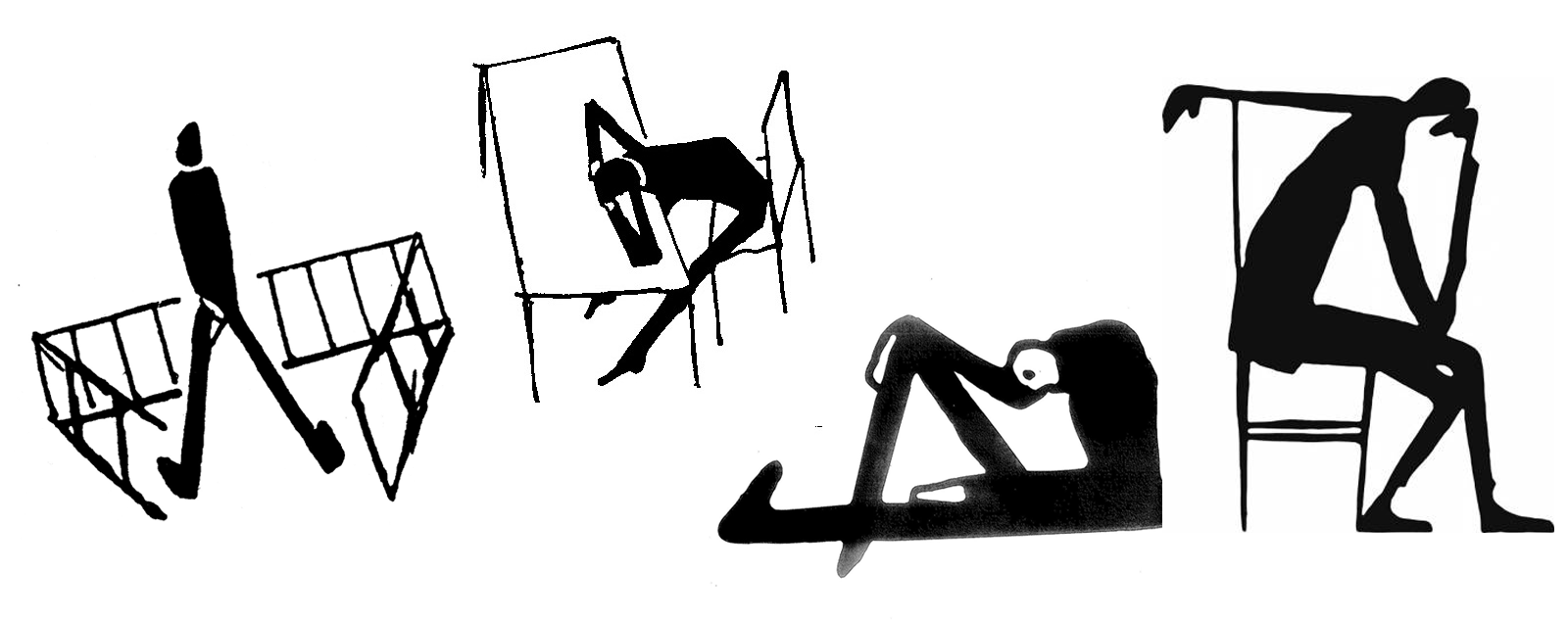Would you call yourself an ethical designer? How do you test if your design is ethical? Can you A/B test and optimize the ethics of your design? What is your UX code of ethics? Was it written by an older white male heading a well-respected design / research institute founded in the 20th century?
There’s a trend in the UX industry of attacking “unethical” or “dark” user experience designs, and a similarly reductive trend refuting or qualifying those attacks. Yet, somehow, there are still design features that are near-universally thought of as being “unethical.”
For example, designs that attempt to make opting-out of services difficult via graphical trickery (e.g. making the text especially small or a similar color to the background) would almost certainly be referred to an example of poor UX ethics by most designers.
This article isn’t an apology or defense for those design choices. If anything, this is our response to those that believe all UX design is inherently unethical as well as those that cling to notions of UX ethics at all.
TryMyUI does more: A/B testing for your websites; A/B testing for mobile apps

First, a parabolic prelude
You awake one morning to find yourself arrested. You do not know for what reason, and you are certain that you have done nothing wrong. So what gives? Unfortunately, you will never know what the charges are, just that you are unquestionably guilty of them.
This is the synopsis of Franz Kafka’s The Trial, and will serve as a symbolic anchor for UX ethics. Although Joseph K., the protagonist, is never made aware of his alleged crimes, the reader will come to realize the charges and process are actually irrelevant. What matters is that the system of justice must always be correct, which means Joseph K. is automatically guilty.
Imagine yourself in a similar situation, only that instead of being arrested, you are flamed on Twitter by UX “thought leaders.” You don’t know what you did, but you’ve been labeled as an “unethical” designer.
Now what?
Before the ethical UX community
As you toil in Twitter hell, contemplating the end of your social media life, you receive a DM. It’s an old mentor of yours who, while maybe no longer possessing any industry clout and is therefor in no position to help, is still a knowledgable person.
He reminds you of a parable about a young UX designer who wishes to gain entry to the ethical UX community. But before the ethical UX community sits a gatekeeper, one with many followers on Twitter. The gatekeeper refuses to invite the designer, saying instead, “It is possible, but not right now.” Peeking around the gatekeeper, the designer sees an illuminated courtyard with yet another gate in the distance.
 The gatekeeper tells her that she could force her way through if she wanted. However, he also warns her that he was only one of many gatekeepers, and each one after him possesses even more Twitter followers.
The gatekeeper tells her that she could force her way through if she wanted. However, he also warns her that he was only one of many gatekeepers, and each one after him possesses even more Twitter followers.
The designer elects to not force her way in, instead attempting to curry enough favor with the gatekeeper to be invited in. With each attempt, the gatekeeper reiterates that he will not invite the designer in, but also that he perhaps might someday.
After years of attempted persuasion and now on her death bed, the designer asks a final question of the gatekeeper, “Everyone strives after the ethical UX community, so how is that in these many years no one except me has requested entry?”
The gatekeeper replies, “Here no one else can gain entry, since this entrance was assigned only to you. I’m now going to close it.”
…
You… don’t quite get it.
Recommended reading:
Truth and necessity; UX ethics and morals
In a resigned *sigh* you decide that everything the UX thought leaders, like the gatekeeper in the parable, say must be true. Your mentor, however, says that “It is not necessary to accept everything as true, one must only accept it as necessary.” You then have your much needed brain blast.
This parable appears in The Trial, but instead of the ethical UX community, it’s merely “the Law.” It’s fairly clear from the text that the Law maintains its power by purporting its own importance and obscurity to those willing to bow to its authority. Sound familiar?

By accepting the difficulty of joining the ethical UX community, you are feeding into the “necessity” of the system without scrutinizing it for “truth.” You’ve accepted it as inevitable and beyond you.
UXers are arguing for “ethical” design often without understanding the basis of their critique: that it comes from a moral place, not an ethical one. A quick refresher from high school civics class: morals are personal, ethics are societal.
Like in the parable, you are accepting the individual morality of gatekeeping thought leaders instead of testing them for a system of ethics. So, where should ideas of ethics come from? Most designers will likely settle on a maxim like “as long as my design is transparent, it is ethical.” That seems pretty ethical, right?
Well…

This business of UX ethics
For better or worse, user experience design is not an art or a service; it’s a business. What is appropriate for a business entity when interacting with a customer? Consider the data you must collect to design a user experience, and how much of it is ethically sourced and if it is ethically used, and so on. Your cog is but one in a greater machine that is informed and in-turn informs other cogs of varying considerations for ethics.
Sometimes, you might do something unethical without even realizing it.
To revisit an earlier example, it might seem ethical to make opt-out form text a contrasting color to the background color. But did you account for the spectrum of color-blindness? Does that contrasting color actually blend into the background for some people?
Is any design that doesn’t account for accessibility suddenly deemed unethical if, while appearing ethical to most, is unethical to some, by the definition of all?
By strict definition, yes. You’re probably an “unethical” designer without even knowing it simply because such techniques are mainstays of the industry. Your innocence must be impossible simply due to the fact that you were flamed by the system that you accept as necessary.
A contemporary push in UX ethics
Business ethics is a relatively recent field with lots of differing opinions, informed primarily by law. Aside from this LinkedIn case, UX has mostly slipped through the cracks in terms of legality. The only “laws” anyone in the UX community talk about are principles, not matters of actual, enforceable law.
But, even robots are still getting away with daily calls to your phone using a familiar area code, so it’s not like UX is alone here. There’s a lot of work to be done in the field of business ethics, and UX is a great place to start.

Loot boxes, paid-for virtual boxes of random goodies in popular video games, are being tried as violations of gambling laws in the EU and are considered unethical to expose children to. Although the case is on-going, it’s the first time design has come under such intense legal fire for their ethical responsibilities.
The designers behind loot boxes were tasked to earn money for their company. Many video game companies have moved to free-to-play or subscription-based models in a reaction to dwindling profits due to piracy. Like all designers, the loot box team were given a problem to solve (find more profit revenues), and so they developed a viable solution.
There were no laws preventing loot boxes, and in most places, there still aren’t. Immoral? For everyone except Electronic Arts, yes. Unethical? Not legally, anyway.
Until designers are free to focus on benefiting the user, which is something a lot of UX designers wish they could do, they will always be forced to benefit the business that employs them first and foremost. This may include marketing or development strategies that are immoral, but not truthfully unethical. Yet.

Corporate realities of the will to design “good”
So now you know that you must at least be immoral in someway and that’s why you’re being flamed on Twitter. But you also know that you aren’t unethical, in a business sense at least. You have decided not to get bogged down in an ethical debate with moralist elitists.
So what can you do moving forward?
Remember that ideas of ethics have been debated for at least a couple of millennia. There’s certainly nothing particularly invalid with adhering to preexisting ideals of UX “ethics,” no matter who is shilling what morality. But don’t confuse that as an industry standard of enforceable ethics.
Consider, too, that there are clear legal lines that can serve as guides that are more about what you can’t do, such as non-consensual surveillance of users and the (involuntary) selling of their personal information.
If your intentions are good and you aren’t breaking any laws, you could consider yourself an ethical designer. You will, in the course of your career, almost certainly be asked to violate your own code of morals for the sake of the company or the client.
This is the great tragedy facing UX designers: you work in an ethically questionable industry which will inevitably clash with your own moral code.
Coping with the current state of UX ethics
 This is normally the part of an article that offers a solution to fix everything. Unfortunately, ethical solutions in business require nuance and a powerful, political push to get anything done. The tech industry is obviously no utopian coterie of progressive, protective politics. You just might be on your own to form a sort of ethical relativity for now.
This is normally the part of an article that offers a solution to fix everything. Unfortunately, ethical solutions in business require nuance and a powerful, political push to get anything done. The tech industry is obviously no utopian coterie of progressive, protective politics. You just might be on your own to form a sort of ethical relativity for now.
Adherents to 18th century Prussian philosopher Immanuel Kant take solace in the idea that the will to do what would be ethical in a universal sense is ethics enough, regardless of outcome or consequence.
Ask yourself “If my decision were to become the decision taken by everyone always, would it be a good thing?” Logically, the only purely good and ethical action in life is the pursuit of ethics itself. For a fun example, see this video.
But there is, to tie back again to our parable, a great misunderstanding about the intransigent nature of business ethics, just like in Kafka’s writing.
Although the world of business ethics and those featured in Kafka’s works may seem miserable and unpleasant, terrifying and without resolution, there’s a great deal of power afforded to those able to recognize it:
- Write and speak about the need for new ways to protect the user and hold designs and businesses accountable
- Pressure your senators or other such government officials to take UX ethics seriously
- Keep working and doing the best you can do for the user by making seamless, smooth designs that won’t exploit or frustrate them
Until, that is, you’re FORCED to do something immoral. Then you must measure possible unemployment against your own morality.





